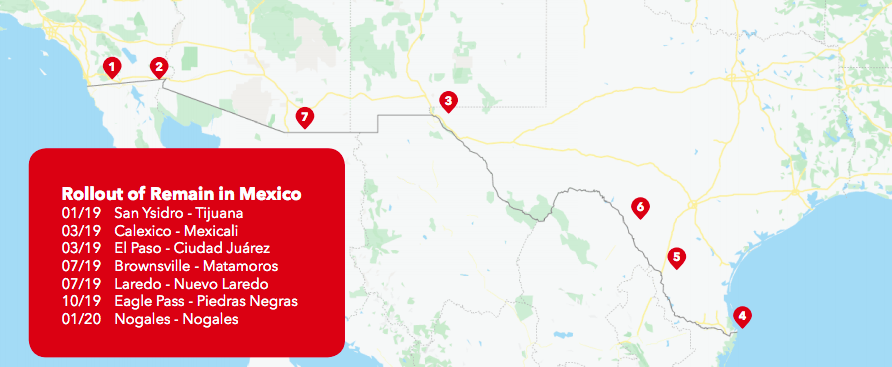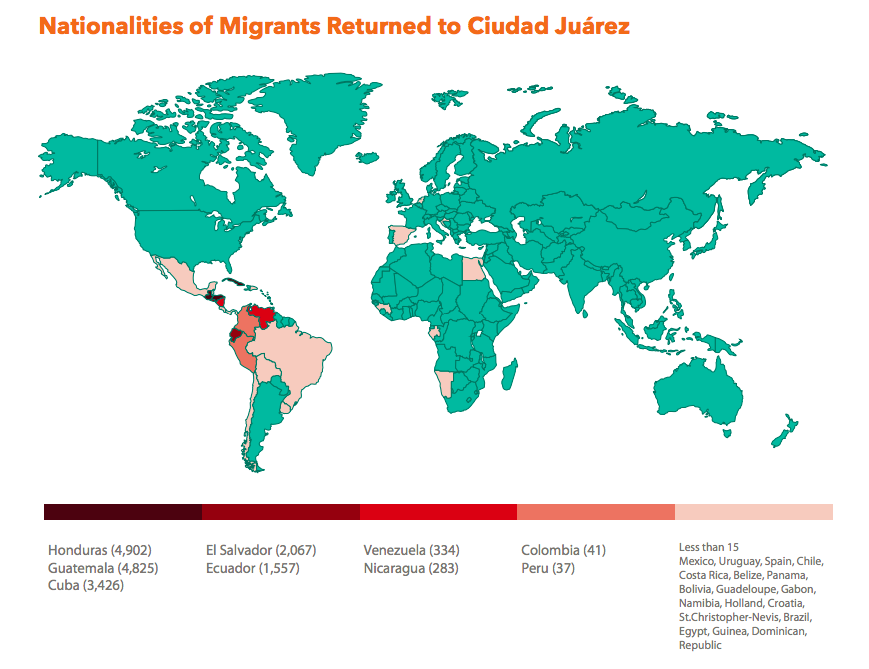EL PASO, Texas (Border Report) — Even as migrant advocates celebrated a temporary halt to the Trump administration’s practice of making people seeking asylum in the U.S. wait in Mexico, several questions remained.
Most pressing among them is whether the Administration would actually abide by Friday’s 9th Circuit Court of Appeals ruling against the Migrant Protection Protocols (MPP) program. Another is if the 60,000 claimants already escorted back to Mexico will be allowed to return and wait on U.S. soil for a resolution to their cases.
“Our first priority is ensuring that the Department of Homeland Security respects this injunction and allows our clients — and every other migrant subjected to MPP — to enter the United States to await their asylum hearings in safety,” said Brooke Bischoff, staff attorney at Las Americas Immigrant Advocacy Center in El Paso.
Bischoff said the 9th Circuit Court’s ruling against MPP is a positive step toward deriding a program that prioritizes the speedy deportation of asylum seekers over their rights to counsel and a fair hearing. “But if history teaches anything, it’s that we will need to closely monitor the situation to ensure that DHS is complying with the court order and obligations under federal and international law,” she said.
The Court ruled 2-1 in favor of a lower court’s injunction against MPP. The judges agreed with a lower-court judge that MPP likely violated federal immigration law by ousting undocumented asylum seekers applying for protection in the United States and then sending them to a country where they would face persecution.

CBP Acting Commissioner Mark Morgan bashed the Court’s ruling, saying it undermines efforts to prevent illegal immigration and creates a judicial “loophole.” He warned that his agency will do what it needs to maintain the nation’s borders secure.
“This ruling by the Ninth Circuit Court oversteps and re-opens the door to the exploitation of migrants by transnational criminal organizations. It erroneously sends the message that anyone who comes to the border will be released into the United States,” Morgan said in a statement late Friday. “Everyone should understand that CBP will utilize every tool at our disposal to maintain the integrity of our immigration system and border security.”
Migrant advocates throughout the United States for more than a year have been saying that asylum seekers — mostly from Central America — are often preyed upon by criminals in Mexican border cities.
The American Immigration Council last year surveyed hundreds of migrants placed in “Remain in Mexico” about their experiences south of the border.
“In the year that the program has operated … thousands of people have been kidnapped, assaulted and suffered the horrible consequences of this unlawful program,” said Council Executive Director Beth Werling.
She estimates that barely 5% of the more than 60,000 asylum seekers sent to Mexico have had access to legal counsel to present their cases.
U.S. Rep. Veronica Escobar, D-El Paso, shares the nonprofits’ mistrust about the Trump administration heeding the ruling.
“For over a year, the Trump administration’s dangerous ‘Remain in Mexico’ policy has been a stain on the rule of law and our nation’s conscience,” she said. “DHS must now follow the law, issue guidance for the nearly 60,000 asylum-seekers who have been returned to Mexico, employ alternatives to detention, and guarantee the humane treatment of all asylum-seekers.”
Just how many of those 60,000 people are still around is a mystery. Mexican officials have told Border Report that many Central Americans have left cities like Juarez since last June. Shelters like Casa del Migrante say buses filled with migrants who’ve decided to return home every so often depart toward southern Mexico.

But many are still around. Just this week government representatives from Honduras, Guatemala and El Salvador held a consular services fair in Juarez for those who are trying to get jobs or need documents to continue their asylum claims — both in the United States and now Mexico.
Linda Rivas, the executive director of Las Americas, said the nonprofit has effected legal maneuvers to remove several clients from MPP. “But many people did not have the same fate. We hope that DHS will follow the law and promptly ensure that migrants currently forced to wait in Mexico are lawfully paroled into the United States.”
Visit the BorderReport.com homepage for the latest exclusive stories and breaking news about issues along the United States-Mexico border.
















